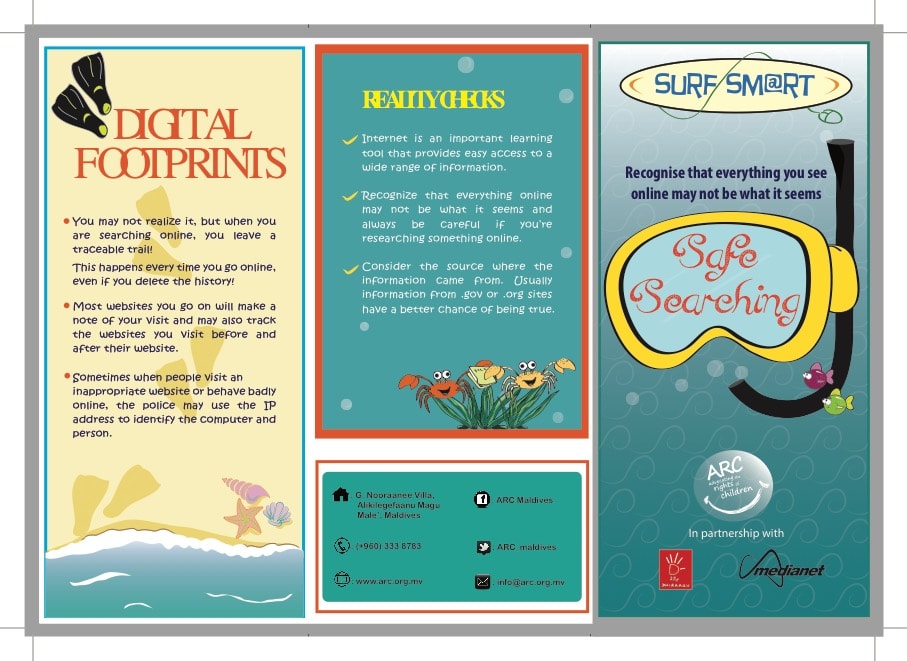
Brochure


Recognize that everything online may not be what it seems and that you always leave traceable trails
- Would you really believe things that every single person you meet tells you? So why believe everything you read online?
The Internet is an important learning tool, as it helps you with research, develops computer skills required for study or work and provides easy access to a wide range of information. However, you have to be mindful that the Internet does not always give the right information. Just like we know that what we see in the movies is not real life, neither is most of what we see on the Internet. This is because unlike most printed books or newspapers, anyone can easily get published on the Web. Don't believe everything you read or see online, as lots of information on the Internet is:
Always be careful if you’re researching something online, and consider the source where the information has come from. Talk to your teacher or parent about safe and accurate websites for research. Usually information from a .gov or .org site, has a better chance of being true. If you use online information in a school project or assignment, you should always note the source of information.
Tips for smart searching:
The most precise words will give the best results. Add more words to narrow your search. There's a big difference between "Pepper" and "Red Bell Pepper."
If you can't find what you're looking for, you should try keywords that mean the same thing or are related.
Typing even innocent keywords into a search engine can get search results that are inappropriate or illegal.
- Do you know that your computer can be used to trace websites you visit?
You may not realize it but when you are searching online, you leave a traceable trail! This happens every time you go online, even if you delete the history! Most of the websites you go on will make a note of your visit and may also track the websites you visit before and after their website. Sometimes when people visit an inappropriate website or behave badly online, the police may use the IP address to identify the computer and person. IP addresses are like telephone numbers for computers. Whenever you go online, your computer is given a special number to identify it. This number is called an Internet Protocol address (IP address). Without this special number the computer cannot receive any information from websites or other computers.
Try to use a well-known search engine such as Google or Yahoo! and remember to visit sites which you think are safe, not only because you leave online footprints, but also because some sites will download viruses or spyware which can destroy files and damage your computer – and you might not even know that it has happened.